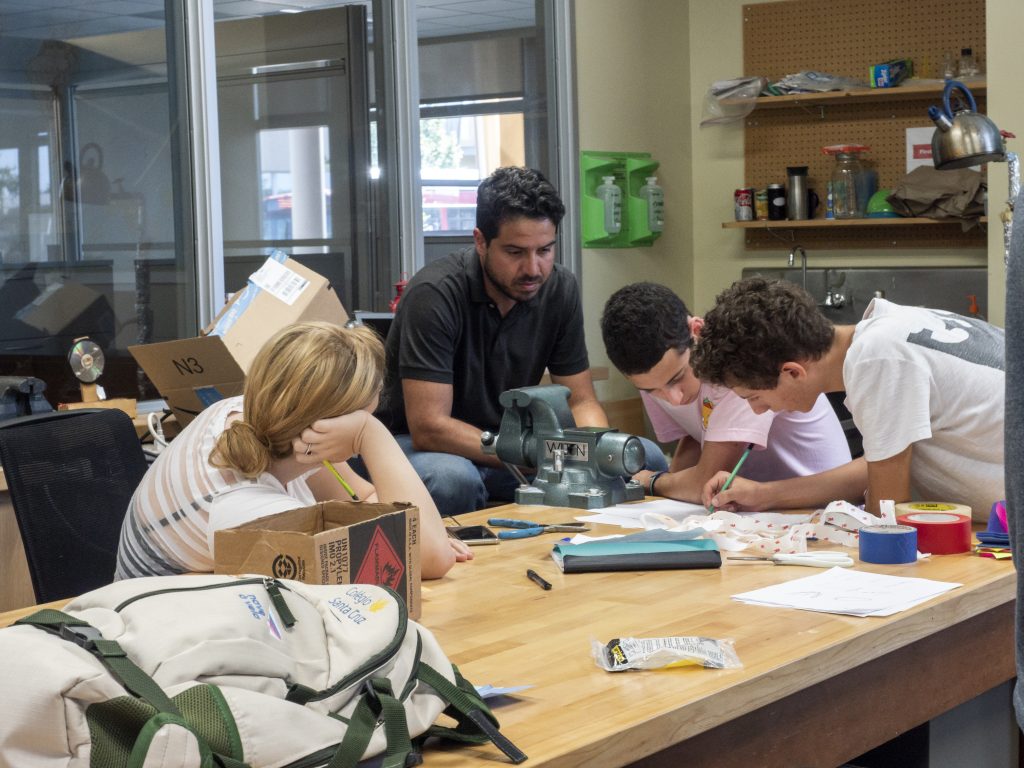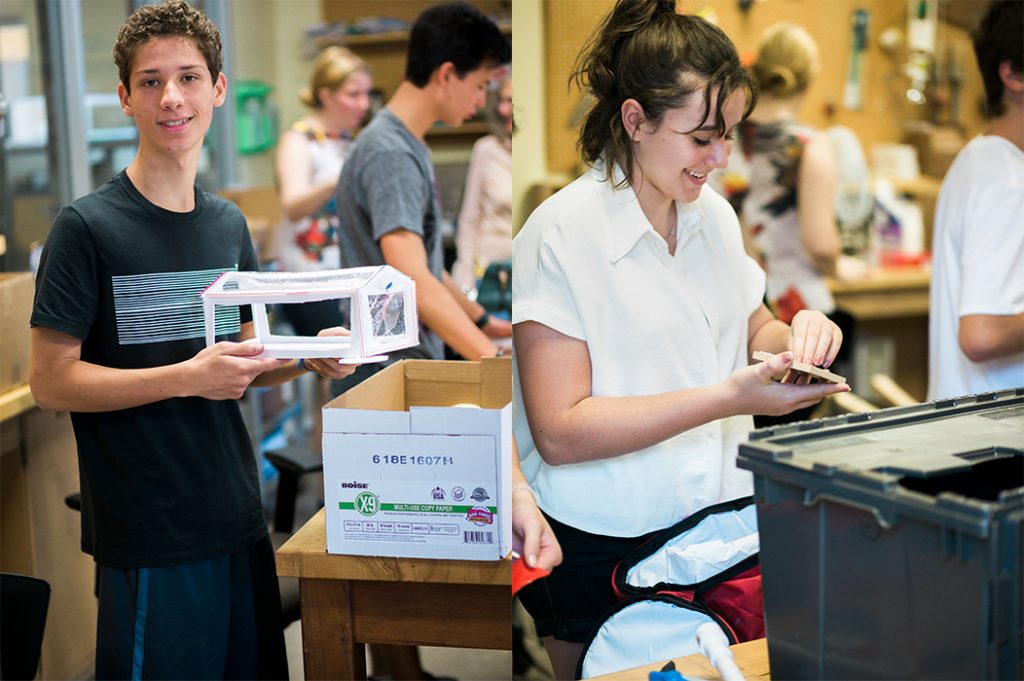UC Davis Hosts Brazilian High School Students to Design Farming Solutions that Help Refugees
Eleven students participate in a week-long course that teaches the fundamentals of design to solve real-world problems
This summer, the D-Lab at UC Davis offered a week-long, intensive design class to a group of Brazilian high school students as part of the International Development Innovation Network. Through this unique course, students learned the fundamentals of design by working with real clients to provide solutions with social and environmental impact.
The eleven participating high school students worked on a project for the International Rescue Committee where they designed three prototypes to advance a community garden in Sacramento for refugee farmers. “It was one of the best experience I had in my life,” remarked Pedro Sugiyama, a student participating in the class.
“This was an incredibly valuable experience for our students,” said Marcelo Rogozinski, Financial Administrative Director at Colégio Santa Cruz. “It not only taught them life-long professional skills, it also enhanced their language skills and social and cultural awareness, and enabled them to help improve the lives of people in an international context.”

About the class
Students visited their client, a community garden for refugees in Sacramento, and worked all week to research, design and prototype solutions to three identified needs: a mushroom growing room, greenhouse/nursery, and a solar fruit dryer. At the end of the week, students presented their prototypes to the client and community members for feedback. “This was a very rewarding week. We taught students the fundamentals of the design process and how to work with real clients. We also focused on the four lenses of sustainability, which include economic, environmental, technical, and social considerations” said Jennifer Mullin, the lead instructor and a lecturer in the Department of Biological and Agricultural Engineering. “It’s very nice to understand that the design process can be used in any moment of life,” remarked Gustavo Meira, one of the participating students.

About D-lab
The UC Davis D-lab is run by the Program for International Energy Technologies. It was founded in 2009 to accelerate the development and commercialization of low-cost, clean and efficient energy technologies and solutions in developed and developing countries. “In D-lab, cross-disciplinary student teams work with international community partners to solve real problems,” explained D-lab founder Professor Kurt Kornbluth. “While usually focused on undergraduate and graduate students, offering a summer program for high school students is a great way to expand our international impact and the benefits of this teaching model.”
About the students
The eleven high school students participating in this class were from Colégio Santa Cruz in Sao Paulo, Brazil. Founded in 1952, this high school focuses on developing critical and active citizens, incorporating social immersion experiences in its curriculum and regularly working on projects in low income areas. A few years ago, the school started working with the Massachusetts Institute of Technology D-Lab and this year they offered their first class at the UC Davis D-Lab. “We are thrilled to be able to offer our students these types of opportunities and look forward to working with UC Davis in the future,” said Miguel Chaves, an instructor from Nave à Vela in Brazil that helps schools structure classes that engage students in social and emotional learning. “It is such a rewarding experience to see the students so engaged and interested while learning.”

